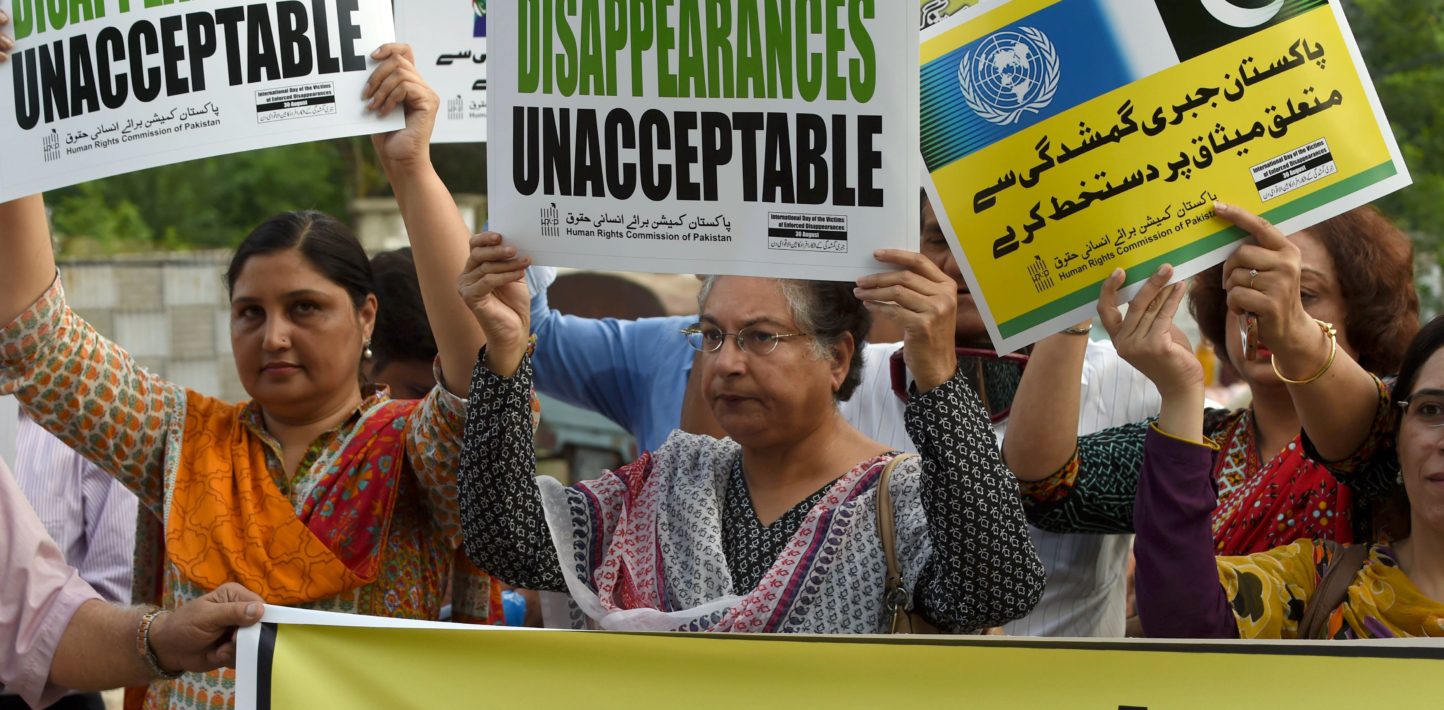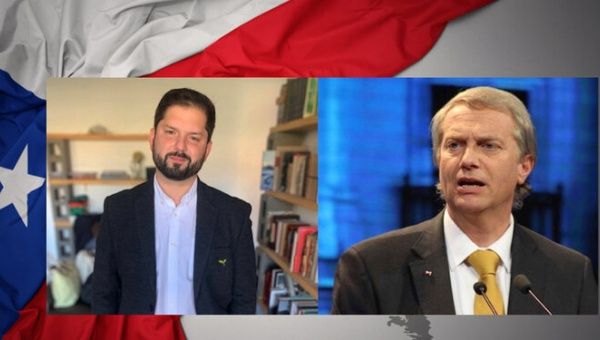Venezuela: Chavismo Wins Governorships in 20 of 23 States

A man casts his vote, Caracas, Venezuela, Nov. 21, 2021. | Photo: Twitter/ @ALBATCP
Published 21 November 2021
"It is a victory for the humble people, the noble people of Venezuela, who have endured a brutal war," President Nicolas Maduro stressed.
Venezuela's National Electoral Council (CNE) President Pedro Calzadilla reported a 41.80 percent turnout in Sunday's Subnational elections.
RELATED:
‘We Do Not Renounce the Transition to Socialism’, Maduro Says
Having counted 90.21 percent of the ballots cast in the elections, Calzadilla reaffirmed that the elections took place in a peaceful environment.
The United Socialist Party of Venezuela (PSUV) candidates hold leads in 20 out of 23 states for the governor's race.
Meanwhile, the opposition coalition United Democratic Table (MUD) candidates secured a lead in the Cojedes and Zulia states. Neighbors Force (FV) party secured the other governor post for opposition sectors in the Nueva Esparta State.
"Nothing disturbed the electoral process ... International observers move freely throughout the country to verify the electoral process... It is a victory for the humble people, the noble people of Venezuela, who have endured a brutal war," President Nicolas Maduro stressed.
Over 21,000,000 Venezuelans were called to cast the ballots to elect 23 governors, 335 mayors, 253 lawmakers, and 2,471 councilors.
The CNE delivered credentials to over 300 international observers from 55 countries and institutions such as the European Union (EU), the United Nations (UN), and the Carter Center.
Nearly 70,000 candidates from all political forces in the South American nation contested the elections. They represented 37 national political parties and 43 regional organizations.
Venezuela Election: FANB To Continue Safeguarding the Elections
Military officers close a polling center as voting hours end, Caracas, Venezuela, Nov. 21, 2021. | Photo: EFF
"The Venezuelan people were summoned and came out to say YES to democracy and peace, and to say NO to violence, to bullets and interventionism," Padrino said.
On Sunday, 21.1 million Venezuelans are entitled to elect 23 governors, 335 mayors, 253 state legislators, and 2,471 councilors. For the first time since 2007, opposition parties participate in the democratic process and call on the population to go to the polling stations. The main events of this electoral event are presented below according to their occurrence at local time.
20.00. Ratifying Sunday's peaceful atmosphere, Defense Minister Vladimir Padrino noted that the Subnational Elections mark a new path for peace, reinstitutionalization, and democracy in the Bolivarian nation.
"The Venezuelan people were summoned and came out to say YES to democracy and peace, and to say NO to violence, to bullets and interventionism, and to those people who have tried to disrupt and destabilize our institutions and our democracy," Padrino
said.
The Bolivarian National Armed Forces (FANB) and the Strategic Operational Command will continue to support the electoral process as elections will be held in Indigenous peoples' entities in the upcoming days.
19.20. Colombian Electoral Observer Piedad Cordoba expressed that Sunday's elections ratified "the civic, transparent and peaceful vocation" of Venezuelans in a legitimate electoral process.
"In 22 years, there have been 29 elections, and I am happy because I tell you that Venezuelans have the solution to their problems in democratic ways," Cordoba said.
18.30. The National Electoral Council confirmed the closing of polling stations nationwide in line with electoral law. It is only keeping open those centers with people lined up to cast their votes.
The Citizen Verification will begin in 54 percent of polling stations, after a drawing in each voting center.
The meme reads, "The Educational Unit in the Caricuao parish of Caracas was another of the electoral centers visited by international observers accredited by the National Electoral Council, among them, the ALBA-TCP Executive Secretary Sacha Llorenti."
17.30. Elections Observation Missions representatives offered their impressions on the Subnational Elections held on Sunday.
Uruguay's former Foreign Minister and International Observer Ricardo Patiño thanked the Venezuelan authorities for their invitation while highlighting the "significant level of participation and democracy" shown in the elections.
Patiño highlighted the representation of all political forces competing in the electoral race at the polling stations and the high level of preparation.
International Observer Cristian Rodriguez from Rebellious France noted the participation of representatives of the opposition sectors and the environment of peace.
Juan Carlos Monedero from Spain pointed out that the Elections evidenced the "enormous prestige and capacity" of the National Electoral Council (CNE), which has a political balance that guarantees its impartiality.
He noted also the peaceful atmosphere of the voting process, which contrasts with the reality of other Latin American countries where candidates face political violence.
Highlighting the occurrence of the electoral race amid the COVID-19 pandemic, Monedero expressed that the elections mark the beginning of new normality in Venezuela.
16.30. United Socialist Party of Venezuela (PSUV) Vice President Diosdado Cabello celebrated the participation of the people and government authorities in Sunday's subnational elections while noting that the polling stations are still open for citizens to vote.
PSUV Socialist Youth's General Secretary Rodbexa Poleo remarked that the Bolivarian movement is a permanent campaign for social transformation, culture, and sports.
"We call on the youth to participate. We have demonstrated that our electoral system is perfect... Young people will propose the projects we have, and together we will crystallize them," Poleo said.
The meme reads, "We are exercising our right to vote as a family with emotion and deep national love. Today is a holiday for the Bolivian Revolution. We will win."
15.20. Following a visit to the polling station "Antonio Ortega Ordoñez" in the Palo Verde sector in Caracas, the Head of the European Union's Election Observation Mission, Isabel Santos, noted that tranquility marks the Election Day.
The Bloc's Observation Mission has about 130 representatives deployed in the voting centers nationwide. They will conclude their activities with a preliminary report to be presented on Nov. 23.
14.50. Venezuela's President Nicolas Maduro cast his vote at a polling station in the Fuerte Tiuna neighborhood in Caracas.
"The Venezuelan electoral system is the only one in the world that has over 18 audits, which are certified with the presence and signature of representatives from all political parties," President Maduro stated.
He reiterated the calls on Venezuelans to assist voting centers and express their will for the future of the Bolivarian nation.
14:00. The Bolivarian Alliance for the Peoples of Our America-Peoples' Trade Agreement (ALBA-TCP) takes part in the international oversight of the Venezuelan elections.
13:30. The opposition politician Henrique Capriles cast his vote. "Venezuela expresses itself by exercising our right to vote," he said.
13:00. The National Electoral Council President Pedro Calzadilla highlighted the efficient operation of voting. Besides indicating that electoral authorities are ready to attend to any eventual complaint of irregularities, he pointed out that these elections demonstrate the Venezuelans' will to resolve their differences in peace.
12:32. International observer Jose Luis Rodriguez Zapatero wants the dialogue between the Venezuelan government and the opposition to resume so that the South American nation can overcome its difficulties and resume its path towards development.
12:30. "I just voted in El Recreo Parish in Libertador Municipality. All the polling stations are working and have accredited witnesses. A fast and fluid process. The Republic Plan is very efficient," said Democratic Action (AD) Secretary Henry Ramos, who is also the vice president of the International Socialist (IS).
11:30. Luis Florido, the opposition candidate seeking to be governor of the state of Lara, came to vote.
10:30. Venezuela's Vice President Delcy Rodriguez stressed that "this election is very important and transcendental for the Republic" and urged opponents to respect the results of this contest.
10:00. Diosdado Cabello, the vice president of the Unified Socialist Party of Venezuela (SUV), affirmed that the "punishment vote" will be for those political groups that disappointed the voters.
09:30. Venezuela's Foreign Affairs Minister Felix Plasencia goes to the polls to cast his vote and made the following call: "That no one is left today without participating, voting, and fulfilling their national duty."
09:00. The president of the National Electoral Council (CNE) Pedro Calzadilla reported that 95 percent of the country's polling stations were receiving votes.
09:00. Domingo Hernandez, the Strategic Commander of the Bolivarian National Armed Forces (CEOFANB), confirmed that the soldiers are providing security through the Integral Defense Zones (ZODI), the Integral Defense Regions (REDI) and the Integral Defense Areas (ADI).
08:30. Karina Carpio, the candidate of the Great Patriotic Pole (GPP) for the governorship of Aragua state, invited citizens to come out and vote to "consolidate democracy and legitimize our Constitution once again."
08:00. Through his account on his Twitter, the opposition politician Alfredo Diaz invited voters to vote
07:30. National Assembly President Jorge Rodriguez invited all Venezuelans to vote this Sunday.
07:00. The National Electoral Council (CNE) President Pedro Calzadilla announced that 76 percent of the polling stations were already serving citizens.
06:30. Venezuela's President Nicolas Maduro called on the population to vote for peace. "The victory target sounds, the heart beats strong. Venezuelans, let's go to vote in peace and harmony and unite for the love of our homeland. Let's vote to win! Let's win to advance!," he tweeted.
06:00. Subnational elections officially begin in Venezuela.






